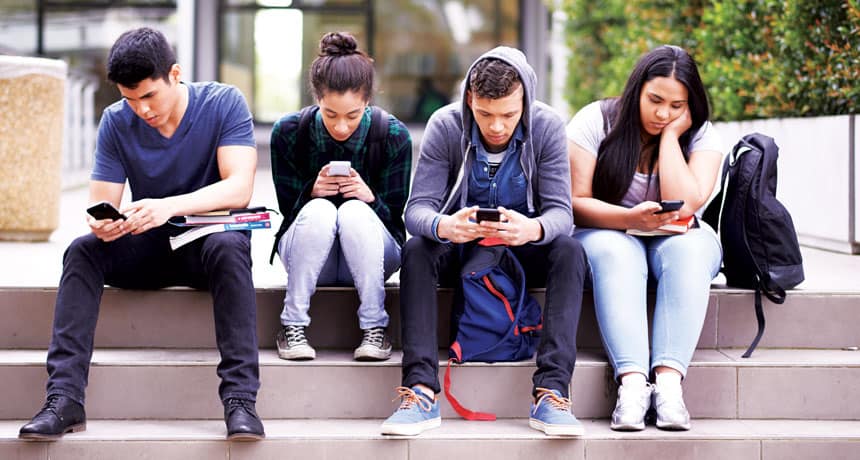Smartphones; never-ending news cycles; taking work home; electronic screens at all hours of the day and night. When does it end?
All “modern conveniences” have us more hyper-connected than ever. Although there is something to be said for the increased productivity and instantaneous information, there is a point of diminishing returns. We’ve crossed a threshold and entered the realm of “advanced technology”. Even if for just one day, everyone can benefit from unplugging.
If every action has an equal reaction and opposite reaction, the natural and logical reaction to your personal electronic universe is to find a quiet haven without glowing screens, without sound devices, and without constant reminders. It all begins with the commitment to disconnect and relax from the daily invasion of modern technology.
Let’s look at the health benefits of unplugging or disconnecting. But first, here are a few facts regarding how our current connectivity has an effect on our health.
The Impact of Hyperconnectivity
The physical toll of never disconnecting is real. For an instance, there is a term for always checking smartphones and other mobile devices: “slow death by texting“. Poor posture of the neck, sagging shoulders, and other negative habits come from endless electronic access. The human head weighs about 12 pounds, and every inch your head tilt forward adds another 10 pounds, in terms of stress in your neck and shoulders. So, in a 3-inch tile, a normal person using a cell phone essentially supports a 42-pound cranium!
And it’s just starting. Immoderate texting has shown to cause “text claw”, where tendinitis leads to a greater problem, through the wrist and the forearm.
These two conditions are side effects of the 21st century; and when a lifestyle (in this case, always being connected) create two completely new health problems – with their own nicknames, no less – it’s time to take note!
Negative physical effects are one thing; psychological issues are another. A widely quoted research paper concluded that too much use of Facebook is, in fact, counterproductive; subjective well-being tends to decrease dramatically among the majority of participants. The remedy is a good face-to-face, meaningful conversations, and other unplanned activities.
Disconnect Your Devices and Reverse the Harm that has been Done
A simple and direct way to disconnect is the “Resolve to take one full day off each week during which you do not touch your computer, check your Smartphone, or make any attempt to keep in touch with the world technology.”, according to Brian Tracy.
This sounds simple enough, but what are the real health benefits of casual unplugging? Here are just a few:
- Promotes an open-minded attitude
- Improve social interaction
- Strengthens the immune system
- Reduces stress levels
- And much more
There is something in the modern desire to disconnect what harmonizes with ancient wisdom and tradition. Shabbat San Diego, one of the main promoters of the holy custom of Judaism, participates in an event of unplugging in the world: International Unity Shabbat.
Shabbat San Diego’s strategic statement echoes some positive aspects in which all of us – regardless of faith – can benefit from distancing ourselves from our phones for a few days: Participants are motivated to disconnect from daily routines, distractions, and calls and connect with Shabbat, a time of individual rest, renewal and spiritual contemplation.
The absolute paradox of our connected world is a conundrum “plugged in, but disconnected”. For each device you’re plugged into, it’s just another wall that lets you unplug your soul and your environment.



